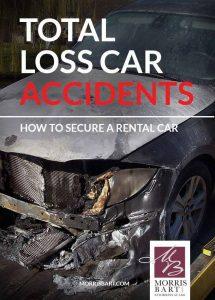
Understanding what liability percentage is can help you get the compensation you need and deserve based on the facts of your personal injury case. When more than one party shares liability in a crash, the state’s comparative fault laws come into play. This could:
- Limit your ability to pursue compensation
- Reduce the compensation available to you
- Mean the other driver could file a claim against you for compensation
Working with a car accident attorney may help you better understand liability percentages and mitigate the effects of shared fault in your claim.
Shared Fault Is Common in Car Accidents
Liability percentages often come into play after a car accident. It is not uncommon for more than one driver to play a role in causing a crash, even though one is usually primarily at fault. Depending on the jurisdiction, this may be called comparative fault, shared liability, contributory negligence, or another similar term.
In general, these laws dictate what happens when more than one party in a crash contributes to causing it. For example, imagine one driver is speeding, but the other fails to yield the right-of-way to them while turning left. Both drivers acted negligently, but the court determined that the one who failed to yield was 70 percent liable.
This would make 70 and 30 the liability percentages in this case. In most states, the party who is 30 percent at fault could recover compensation for their damages. However, their payout would be reduced by their percentage of fault, 30 percent.
Examples of These Laws Across the Gulf South
- Alabama recognizes pure contributory negligence, as affirmed by the Alabama Supreme Court in Golden v. McCurry (1980).
- Arkansas has a modified comparative negligence rule where a lawsuit is barred if you are over 51 percent at fault under Code Ann. § 16-64-122.
- Under La. Civ. Code Art. 2323 in Louisiana and Miss. Code Ann. § 11-7-15 in Mississippi, anyone can sue for damages, but the payout is reduced by the party’s liability percentage.
For a free legal consultation, call 800-537-8185
Understanding Pure Contributory Negligence
The most strenuous of shared liability laws is pure contributory negligence. This is recognized by Alabama, Maryland, North Carolina, Virginia, and Washington, D.C.
Under pure contributory negligence, an accident victim cannot recover compensation through an insurance claim or lawsuit if they contributed to causing an accident or their injuries in any way. For example, imagine a customer at a grocery store slipped due to a spill. This accident resulted in the store having 90 percent at fault, but the customer was 10 percent at fault. Therefore, they would be barred from a financial recovery in areas with pure contributory negligence laws.
This doctrine can make it very difficult to win a case and recover compensation in these areas. You will want to discuss your case with an attorney familiar with these laws and how to counter allegations of shared fault if you need to pursue damages in Alabama or another pure contributory negligence state.
How Shared Fault Can Affect Your Case
Accusations of shared fault can make your personal injury claim more complex. It could significantly reduce the financial recovery available to you and even leave you paying for medical care and other expenses out of your pocket.
In most states, a victim who contributed less than 50 percent to the accident can still seek damages. However, the insurer or court will reduce their recovery by their liability percentage. This could mean losing 10, 25, or even 50 percent of your recoverable damages.
To prevent this, you will need solid evidence showing the other party’s negligence caused the accident and injuries, and you contributed very little or nothing to causing the incident.
Click to contact our personal injury lawyers today
Can a Personal Injury Attorney Help Reduce Liability Percentages?
If the insurance company or other party tries to blame you for your injury accident, either in full or in part, you should consider speaking with a personal injury attorney right away. They will know how to mitigate the impact these allegations could have on your case.
This can get complex, no matter if you try to convince the insurer you share little fault in the case or if you go to court and let the judge and jury decide. Again, working with an attorney is the best way to ensure you have someone knowledgeable about this process on your side.
Most personal injury lawyers provide free case reviews and work based on a contingency fee. Therefore, you should not need to pay anything upfront. Instead, they will receive their attorney’s fees from the payout they recover for you.
Call to Speak With a Lawyer About Your Legal Options Today
The Morris Bart law firm attorneys provide complimentary consultations for those injured by someone else’s negligence. If you were hurt in an accident, a lawyer will discuss your case with you for free. We have 15 locations across Alabama, Arkansas, Louisiana, and Mississippi.
Call (800) 537-8185 to get started today.
Questions?Call 800-537-8185
to find a Morris Bart office near you.




